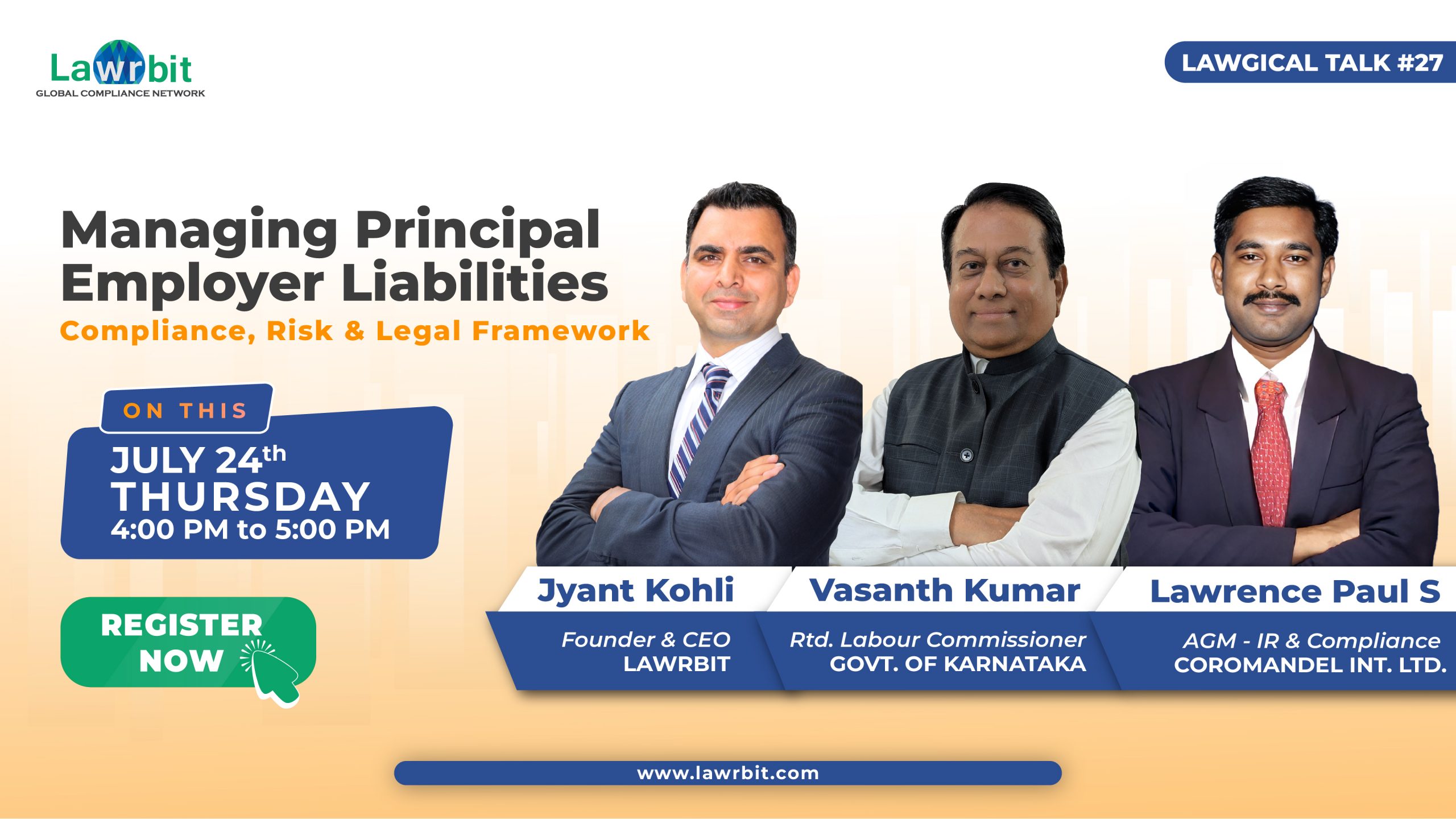INTRODUCTION
The Food Industry is one of the largest and important industries in India having the potential to contribute to the upliftment of the agricultural economy, the creation of manufacturing units and food chain outlets, leading to the generation of employment and export earnings.
Food Business in India is governed by the Food Safety and Standards Authority of India (FSSAI). It is accountable for the Food licensing and the Registration of the Food Business Operators (FBO) in India. It lays down the rules and regulations for running the food business in India under the (FSS Act) Food Safety and Standards Act, 2006. FSS Act is designed on the concept of one Nation One Food Law.
REQUIREMENT OF FOOD REGISTRATION / LICENSE
It is mandatory to obtain a Food License or Registration for every Food Business Operator irrespective of a commercial unit or a home-based food supplier, whether the mode of business is online or offline. Kind of Business covering following
- Manufactures or sells any kind of food by himself/herself
- Petty retailer, hawker, itinerant vendor, temporary stall, Thela, Sweets Shop, Juice Stall
- Temporary or fixed stall involved in preparation, storage, distribution and sale of food products that can be served as a snacks/ tea/coffee and similar variants
- Dairy Units, Vegetable Oil Processing Units
- Slaughtering House, Meat Processing
- Manufacturing/Processing Unit
- Repacking of food product, Storage Units
- Transporters, Refrigerated van/wagon, Oil / milk tankers, Food Trucks
- Wholesaler / Distributor / Retailer / Supplier of Food products
- Marketer promoting Food Products
- Hotel/Restaurant and Bars, Club, Canteen
- Boarding houses serving food
- Banquet halls with food catering arrangements
- Home Based Canteens / Dabba Wallas
- Importer-Exporter of Food products
CRITERIA OF REGISTRATION AND LICENSE
- Food Registration is different from a Food License for the size and nature of the business; registration covers Petty retailers dealing in food products, Food sale is done by the temporary stall-holder or any individual who distributes food in any religious or social gathering except a caterer and so on.
- State License is required by FBO like small to medium-sized manufacturers, storage units, transporters, retailers, marketers, distributors having operations only in one state and covered under State License Turnover criteria. The State License is issued by the State Government with a tenure between 1 to 5 years.
- Central License is required by FBO like Importers, 100% Export Oriented Units, large manufacturers, operators in the Central Government agencies, airports, seaports. FBOs shall obtain the Central License for their head office if having operations in more than 1 state. The Central license is issued by the Central Government with a tenure between 1 to 5 years.
| Types | Turnover | License Criteria |
|---|---|---|
| Petty Food Business | Not exceeding Rupees 12 Lakh (INR 12,00,000) | Food Registration |
| Medium Food Business | Above Rupees 12 Lakhs but not exceeding Twenty Crores (Between INR 12,00000 to INR 20,00,00,000) | State Food License |
| Large Food Business | Above Rupees 20 Corers (INR 20,00,00,000+) | Central Food License |
PROCEDURE TO OBTAIN FSSAI REGISTRATION / LICENSE
- One has to make an application along with required documents and scrutiny fees using the online portal of the Food Safety Compliance System (FoSCoS) - https://foscos.fssai.gov.in/
- The portal is operational from 1-Nov-2020, replacing existing Food Licensing and Registration System
- While Registration, State License and Central License has its specific requirement, the following set of documents are usually required under FSS Act
APPOINTMENT OF PERSON IN CHARGE
FBO which is having different establishments or branches, units or multiple outlets shall appoint person in charge for the purposes of Food business Compliances.
DOCUMENTS REQUIRED
- Address proof
- List of food category and products
- Layout plan of the proposed location
- List of equipment
- NOC from municipality
- Incorporation certificate
- List of directors/partners
- MOA and AOA
- Water test report
- Nomination of Persons by a Company along with the Board Resolution
RENEWAL OR MODIFICATION OF LICENSE AND REGISTRATION
- Renewal shall be applied before 180 days of the expiry of Food License and Registration with a fee equivalent to new License and Registration.
- If there is any change that alters the information contained in the license certificate, Food Business Operator shall apply for a modification of the license with a fee of Rs. 1000 plus differential fee equal to the difference in annual license fee in case of up-gradation
FILING OF RETURNS (Form D-1/D-2)
Licensee for Manufacturing of milk and/or milk products shall file half yearly returns for the periods 1st April to 30th September and 1st October to 31st March of every financial year inform to Form D-2 and other Licensee shall file annual return each year in Form D-1 to the Licensing Authority in respect of each class of food products handled by him during the previous financial year.
| Periodicity of Return | Penalties for non filing of Returns |
|---|---|
| Half yearly returns: Within a month from the end of half-year | In case of failure in return filing , liable to a penalty which may extend to two lakh rupees. |
| Annual return: On or before 31st May of each year | Any delay in filing return beyond 31st May of each year shall attract a penalty of Rs 100 per day of delay |
PENALTIES
- Every person in-charge of the company as well as the Company shall be liable to be proceeded against and punished accordingly for an offence.
- The penalty charge in most cases is in the Form of Monetary value.
- In scenario of grave violations or multiple accounts of rule-breaking, the withdrawal of the license and keeping the business under a supervisor and routine inspection will be the penalty.
E-COMMERCE FBO REGISTRATION
- Online business in India is growing very fast. People are now preferred to choose online mode of purchase than the offline purchase.
- E-Commerce FBO shall obtain license from the Central Licensing Authority for the entire supply chain i.e head office/registered office, manufacturers, transportation, storage, distribution etc.
- FBO have to ensure that the last mile delivery is undertaken by trained delivery personal and the safety of food is not compromised at the time of delivery.
RECENT DEVELOPMENTS
- Mandatory License for E-Commerce Food Business Operators
- Adopted adequate measures to ensure quality and food safety on all online food delivery service platforms
- Food Safety and Standards (Licensing and Registration of Food Business) Regulations being implemented on home chefs/Home Bakers
- Home Chefs with a turnover below ₹ 12 lakh need to get registered mandatorily while those above the turnover threshold need to get a license.
- Hygiene, ventilation and, clean environment is mandatory for all FBO
- Providing equipment for workers including hand gloves, head wears, clean apron and, clean utensils are mandatory
- Listing of only the Registered/Licensed Restaurants allowed on Online Platforms
- FoSCoS is one stop platform for any regulatory compliance transaction of every FBO
IMPORTANT REGULATIONS
The Food Safety and Standards Authority of India (FSSAI) has notified various Regulations covering quality and safety parameters of various food products. Depending on nature of business and products being manufactured, sold, imported; different regulations get applicable on the business
- Food Safety and Standards Act 2006
- Licensing and Registration of Food Businesses Regulations, 2011
- Packaging and labelling Regulation Regulations, 2011
- Food Recall Procedure Regulations, 2017
- Approval for Non-Specified Food and Food Ingredients Regulations, 2017
- Import Regulations, 2017
- Food Products Standards and Food Additives Regulation, 2011
- Food Safety Auditing Regulations, 2018
- Advertising and Claims Regulations, 2018
- Recovery and Distribution of Surplus Food Regulations, 2019
- Foods for Infant Nutrition Regulations, 2020
- Fortification of Foods Regulations, 2018
- Health Supplements, Nutraceuticals, Food for Special Dietary Use, Food for Special Medical Purpose, Functional Regulations, 2016
- Food and Novel Food Regulations, 2016
Disclaimer
The information provided in this article is intended for general informational purposes only and should not be construed as legal advice. The content of this article is not intended to create and receipt of it does not constitute any relationship. Readers should not act upon this information without seeking professional legal counsel.




